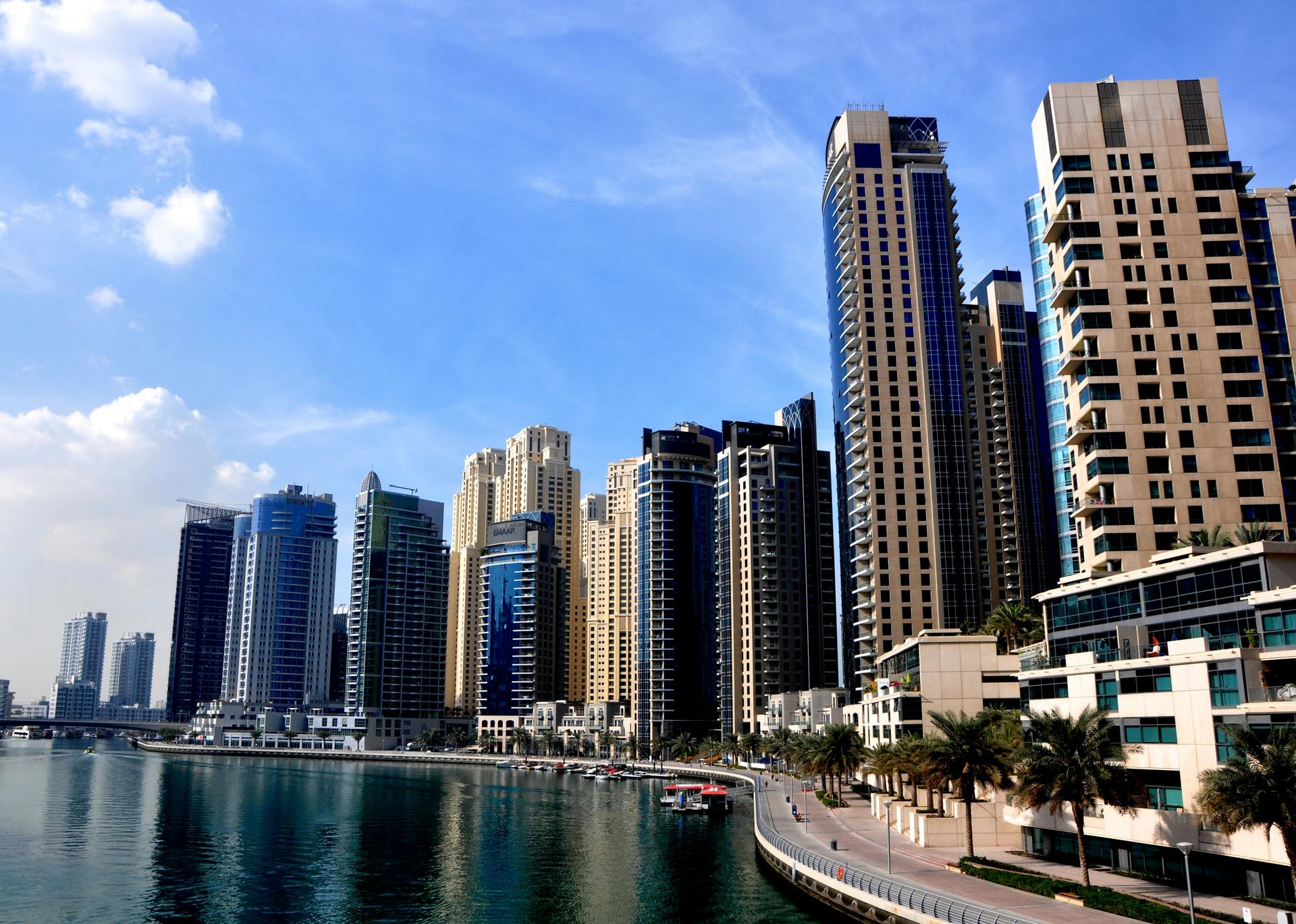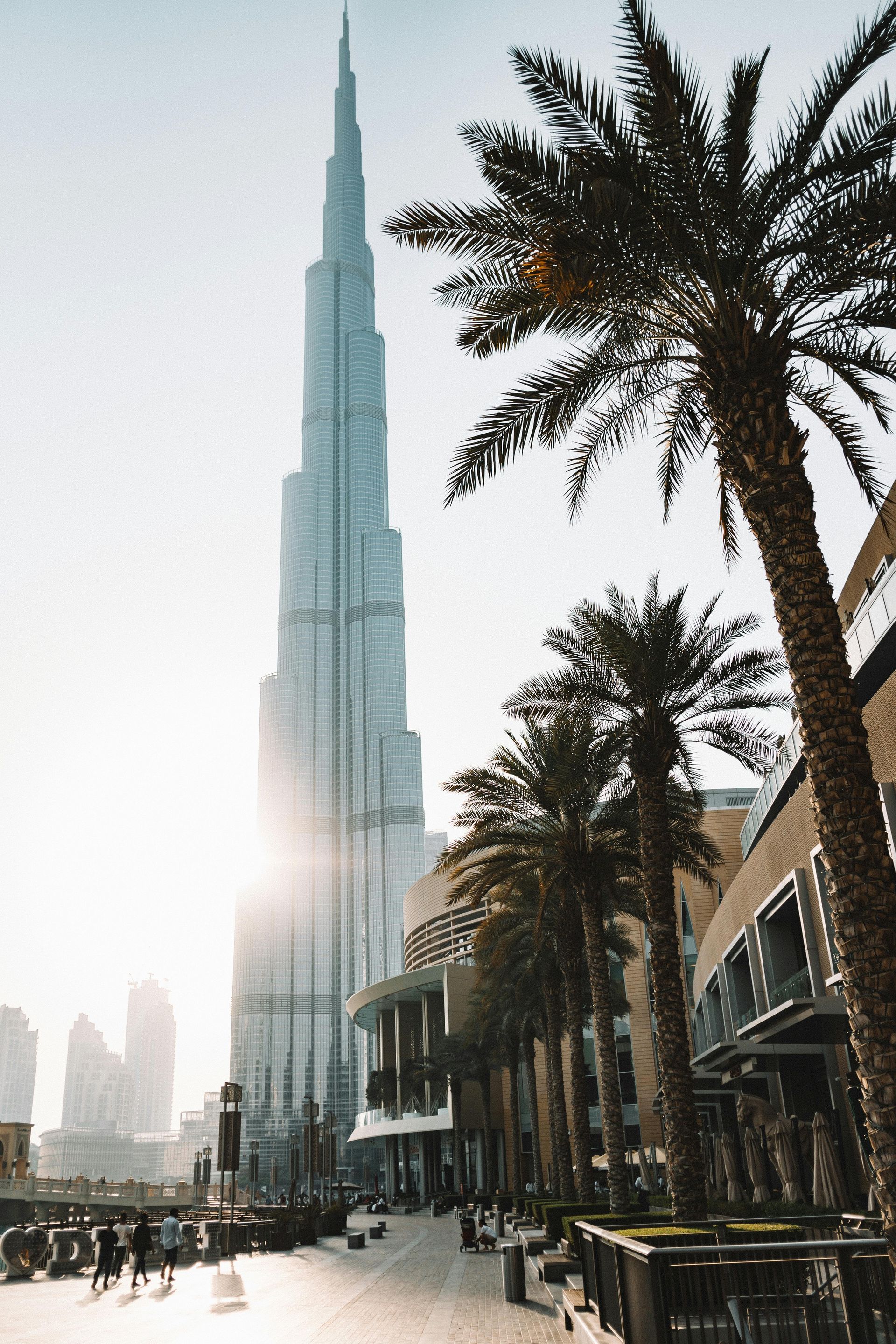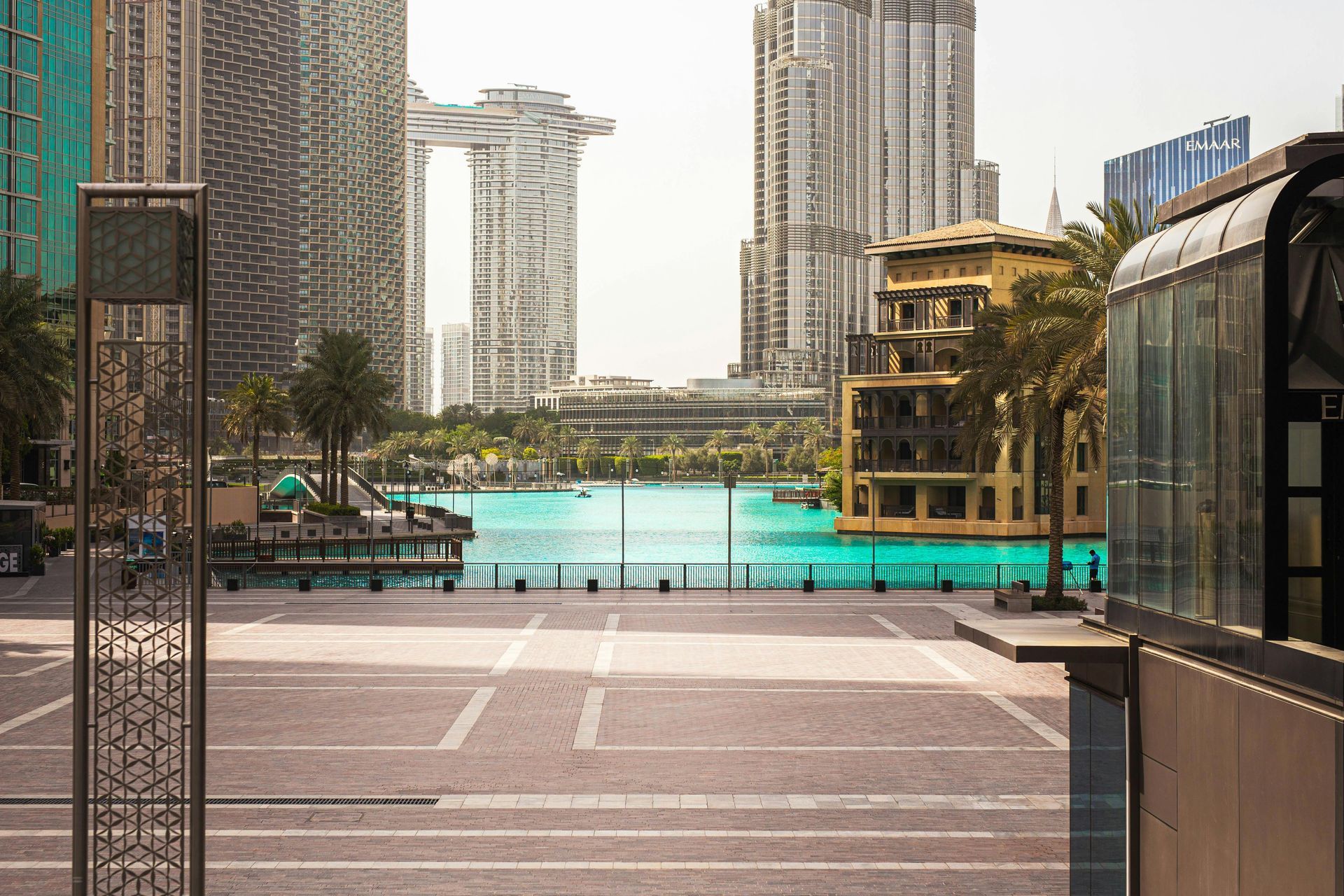Free Zones in the UAE: What They Are and Why They Work
June 24, 2025
Free Zones in the UAE: What They Are and Why They Work

Free zones in the UAE are specially designated areas created to attract international investment and support economic growth. They offer a business-friendly environment with fewer restrictions and greater flexibility, making them an ideal choice for entrepreneurs, startups, and multinational companies. Each free zone is usually built around a specific industry, providing tailored infrastructure, licensing options, and regulatory benefits to suit sector-specific needs.
Contact us
Across the UAE, there are more than 40 of these free zones, each offering full foreign ownership — a major advantage for international investors. In addition to this, businesses benefit from efficient services, advanced facilities, and simplified setup procedures. These zones are designed to remove common barriers to entry, helping companies save time, cut red tape, and operate with greater ease and confidence.
What Are Free Zones?
Free zones are specially designated areas offering foreign investors a compelling package:
- 100% foreign ownership
- Full repatriation of capital and profits
- No corporate or personal taxes, very low customs duties
- Streamlined, business‑friendly setup procedures
- Modern infrastructure and vibrant business communities
Key Free Zones in Dubai
Jebel Ali Free Zone (JAFZA)
Founded in 1985, JAFZA is one of the world’s largest free zones. It hosts over 9,500 companies spanning logistics, manufacturing, trading and real estate. Strategically located next to Jebel Ali Port, Al Maktoum and Dubai International Airports, it handles trade through 150 global ports — contributing significantly to Dubai’s GDP and attracting 32% of FDI.
Dubai Airport Free Zone (DAFZ)
Established in 1996, DAFZ is home to over 2,300 businesses across 20+ sectors, employing around 17,000 professionals. Located adjacent to Dubai International Airport, it offers duty‑free setup, full ownership, repatriation and world‑class facilities.
Dubai Silicon Oasis (DSO)
Since 2004, DSO has been the go‑to hub for tech companies, offering serviced offices, industrial land, warehousing and R&D facilities within a vibrant residential community.
Dubai Studio City
Launched in 2005, this zone caters to TV, radio and film production, including music, animation and post‑production. It provides studios, workshops, offices and storage tailored for media professionals.
Dubai CommerCity
The first free zone dedicated solely to e‑commerce, CommerCity supports brands operating across the MENASA region. It’s split into business, logistics and social clusters, offering warehousing, last-mile delivery, e‑commerce tech and customs advisory.
Dubai Outsource City
Founded in 2007, this zone focuses on outsourcing services — from call and data centres to warehousing — and includes built‑in support for licensing, registration and visa processing. It’s also known for hosting workshops and community-building events.
Dubai Science Park
This Al Barsha South zone supports scientific research, innovation and laboratories. It’s home to hundreds of companies and 3,000+ professionals across biotech, life sciences and environmental technologies.
Dubai Healthcare City (DHCC)
Opened in 2002, DHCC is dedicated to medical services, education and research. It features hospitals, clinics, diagnostic facilities, medical universities and wellness services, drawing medical tourists and becoming a healthcare innovation centre.
Dubai International Financial Centre (DIFC)
Established in 2004, DIFC is a finance-focused zone regulated by its own authority and courts. Covering banking, insurance, asset management and fintech, it offers English-language common-law framework and 50-year tax guarantees. It now hosts over 3,000 firms.
Meydan Free Zone
Born in 2009, Meydan supports more than 2,500 business activities ranging from e‑commerce and media to real estate. Located near major logistics hubs, it offers serviced offices, residences, and partnerships with companies like Aramex, Noon, and leading banks.
Why Register in A Free Zone?
- 100% ownership without a local partner
- Tax-free environment and low customs duties
- Simplified and fast incorporation process
- Access to global markets via ports, air, digital & financial networks
- Comprehensive support services and formal infrastructures
- Thriving communities of like-minded businesses
Final Thoughts
Dubai offers a rich ecosystem of free zones, each optimised for a different industry, purpose and stage of growth. Whether you're in logistics, media, healthcare, finance, or cutting-edge tech, there's a zone designed to support your strategy. The key is aligning your business activity, space and connectivity needs with the right free zone, tax advantages, top-tier facilities and a supportive environment tailored for success.
Looking for more than just a company setup? Talk to us about full-service relocation and advisory.
Want a more detailed explanation of freezones? Download our Relocation Guide.

Navigating the UAE Employment Visa Process in 2026 Relocating to the United Arab Emirates for employment offers significant professional and financial opportunities. However, the UAE employment visa process is structured, compliance-driven and time sensitive. Understanding each stage in advance avoids unnecessary delays and protects both employer and employee from regulatory issues. Below is a comprehensive, easy-to-follow guide to the UAE employment visa process as it stands in 2026. Step 1: Securing a Confirmed Job Offer The UAE employment visa process begins with a formal job offer from a UAE-licensed entity. Only an employer registered with the relevant mainland authority or free zone authority can sponsor an employee. The employer becomes the visa sponsor and assumes legal responsibility for: Applying for the work permit Processing the residence visa Ensuring compliance with UAE labour law Covering government application fees (in most cases) Employees cannot independently apply for a standard employment visa without sponsorship. Step 2: Work Permit Application (Entry Permit Approval) Once the employment contract is signed, the employer applies for a work permit (also known as a labour approval) through the Ministry of Human Resources and Emiratisation (MOHRE) or the relevant free zone authority. Documents typically required include: Passport copy (valid for at least six months) Passport-size photographs Signed employment contract Attested educational certificates (if required for the role) If the employee is outside the UAE, an entry permit is issued, allowing them to enter the country legally for employment purposes. If the employee is already inside the UAE on a visit visa, status adjustment procedures apply. Step 3: Entry to the UAE (If Applying From Abroad) For applicants outside the UAE, the entry permit allows legal entry into the country. Once inside the UAE, the individual must complete the residency formalities within the validity period of the entry permit (usually 60 days). Timing is critical at this stage. Failure to complete the process within the permitted window may result in fines. Step 4: Medical Fitness Test All employment visa applicants must undergo a mandatory medical examination at an approved UAE medical centre. The test typically screens for: HIV Tuberculosis Hepatitis (in certain categories) The medical fitness certificate is a mandatory component of the residence visa application. Processing time: usually 24–72 hours depending on service speed selected. Step 5: Emirates ID Biometrics The applicant must apply for an Emirates ID, which serves as the UAE’s official identification card. This process includes: Biometric data capture (fingerprints and photograph) Identity verification The Emirates ID is linked directly to the residence visa and is essential for: Opening bank accounts Renting property Obtaining a driving licence Accessing utilities and telecom services Step 6: Residence Visa Stamping Following medical clearance and Emirates ID application, the residence visa is issued and stamped electronically against the passport record. Employment residence visas are typically valid for: 2 years (mainland companies) 2–3 years (depending on free zone authority) Once issued, the employee is legally resident in the UAE and may sponsor eligible dependants (subject to salary thresholds). Key Considerations in 2026 1. Free Zone vs Mainland Sponsorship Visa procedures differ slightly between mainland entities and free zone authorities. Free zones operate under independent regulatory frameworks, although federal immigration approval remains central. The choice between mainland and free zone employment has broader implications, including: Corporate structuring Tax residency status Social security considerations Family sponsorship options These should be assessed before finalising relocation plans. 2. Employment Visa vs Other UAE Visa Categories The UAE also offers: Green Visas (for skilled professionals and freelancers) Golden Visas (long-term residence for investors and high earners) Investor/Partner Visas For entrepreneurs and senior executives, an employment visa is not always the optimal route. Strategic structuring may offer longer validity and greater flexibility. 3. Tax Residency Implications The UAE does not levy personal income tax. However, relocating professionals must consider: Exit tax implications in their home country UK Statutory Residence Test (for British nationals) Split-year treatment Ongoing ties and centre-of-vital-interests rules Corporate tax exposure for business owners Inadequate pre-departure planning can result in unintended dual tax exposure. 4. Corporate Tax and Employment Structuring With the introduction of UAE Corporate Tax, business owners relocating to the UAE must assess: Whether they will remain directors of overseas entities Permanent establishment risks Substance requirements Intercompany arrangements Employment structuring must align with the broader corporate and tax strategy. Why a Structured Relocation Approach Matters Many professionals treat the employment visa as a simple administrative formality. In practice, it forms part of a much larger relocation framework that includes: Tax residency planning Wealth structuring Asset protection Banking arrangements Property acquisition Family visa coordination A piecemeal approach often creates long-term complications. How Mosaic Chambers Group Supports Your Move to the UAE At Mosaic Chambers Group, we provide integrated advisory services for internationally mobile individuals and entrepreneurs. We coordinate: Pre-departure UK tax planning UAE tax structuring advice Cross-border compliance Local regulatory compliance We work alongside trusted UAE-based partners to manage: Visa processing Company formation Corporate structuring analysis Family sponsorship applications Wealth protection strategies Relocating to the UAE should be strategic, compliant and financially efficient - not reactive. Speak to Our Advisory Team If you are considering accepting a UAE job offer or relocating your business operations to the Emirates, we recommend obtaining professional tax and structuring advice before finalising your move. Early planning protects your position, reduces risk and ensures your move to the UAE is commercially sound and fully compliant. Get in touch with our team today to begin your relocation strategy with clarity and confidence.

Thinking about moving to Dubai with your family?
We can help you assess eligibility, model the impact, and prepare a clear roadmap before you move.
Contact us to begin a confidential discussion.
Tailored advice for UK families, entrepreneurs, business owners and private wealth structures.
Cross‑border, multi‑jurisdict
